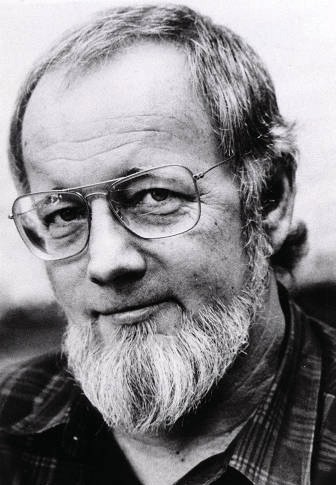Donald Barthelme (1931 – 1989)

Donald Barthelme, n.d.
Publisher | University of Houston
Source | Wikimedia Commons
License | Public Domain
Donald Barthelme was born in Philadelphia, but grew up in Houston, Texas, where his father was a professor of architecture at the University of Houston. From an early age, Barthelme showed an interest in writing, and in high school he won a Scholastic Writing Award, given to young writers. Yet, Barthelme had a strained relationship with his father, who disagreed with his choice of literature and whom Barthelme believed was too demanding and controlling. Despite this rocky relationship, Barthelme attended the University of Houston, where his father worked, and studied journalism. As a student, Barthelme began writing for the Houston Post. In 1953, he was drafted intoservice for the U.S. Army, but arrived in Korea at the very end of the Korean War; thus, he was never in combat. When Barthelme returned to the states, he continued writing for the Houston Post and returned to the University of Houston, this time studying philosophy, although he never earned a degree.
Barthelme’s literary output is most known for his short stories, with his Postmodern fiction being entirely unique. Indeed, he is considered a pioneer of flash fiction. Barthelme’s experimental short stories avoid many of the common traits of a story, with their elements of plot or a linear narrative by instead experimenting with just about every constitutive element. Furthermore, his fiction was highly influenced by his own interest in philosophy, which gave his work an element of gravitas.
In 1961, Barthelme became the director of the Contemporary Arts Museum in Houston; in the same year, he published his first short story in The New Yorker. Soon after, he moved to New York to edit a journal, Locomotion, and would go on to publish several short stories in The New Yorker magazine. In 1964, he published his first collection of short stories, Come Back, Dr. Caligiri, but it was his 1968 book of short stories, Unspeakable Practices, Unnatural Acts, featuring his famous work, “The Balloon,” which brought Barthelme acclaim as a master of the short story. From there, his reputation as a Postmodern writer, primarily of short stories, continued to grow, although he did publish three novels in his lifetime and one posthumous novel. Barthelme helped start a creative writing program at the University of Houston, where he mentored young writers. He also taught creative writing at Boston University and the University of Buffalo. He was married four times and had two daughters. In 1989, Donald Barthelme died of throat cancer.
Barthelme’s short story, “The School,” is an excellent example of his style as a writer. Barthelme is able to take the general concerns of our human condition— concerns over the purpose of life or the reasons we die—and put them in the mouths of school children. Also, he blends both humor and seriousness in one story.
“The School”
Please click the link below to access this selection:
http://www.npr.org/programs/death/readings/stories/bart.html
Reading and Review Questions
- How does Barthelme use humor as a rhetorical technique in this story? What about death as a rhetorical technique?
- At what point does the story feel unrealistic to you as a reader?
- What do you think will happen to the gerbil at the end of the story?
- What, if anything, do you think that Barthelme’s story has to say about schools?
- How is this story similar to and different from other postmodern stories that you’ve read?

